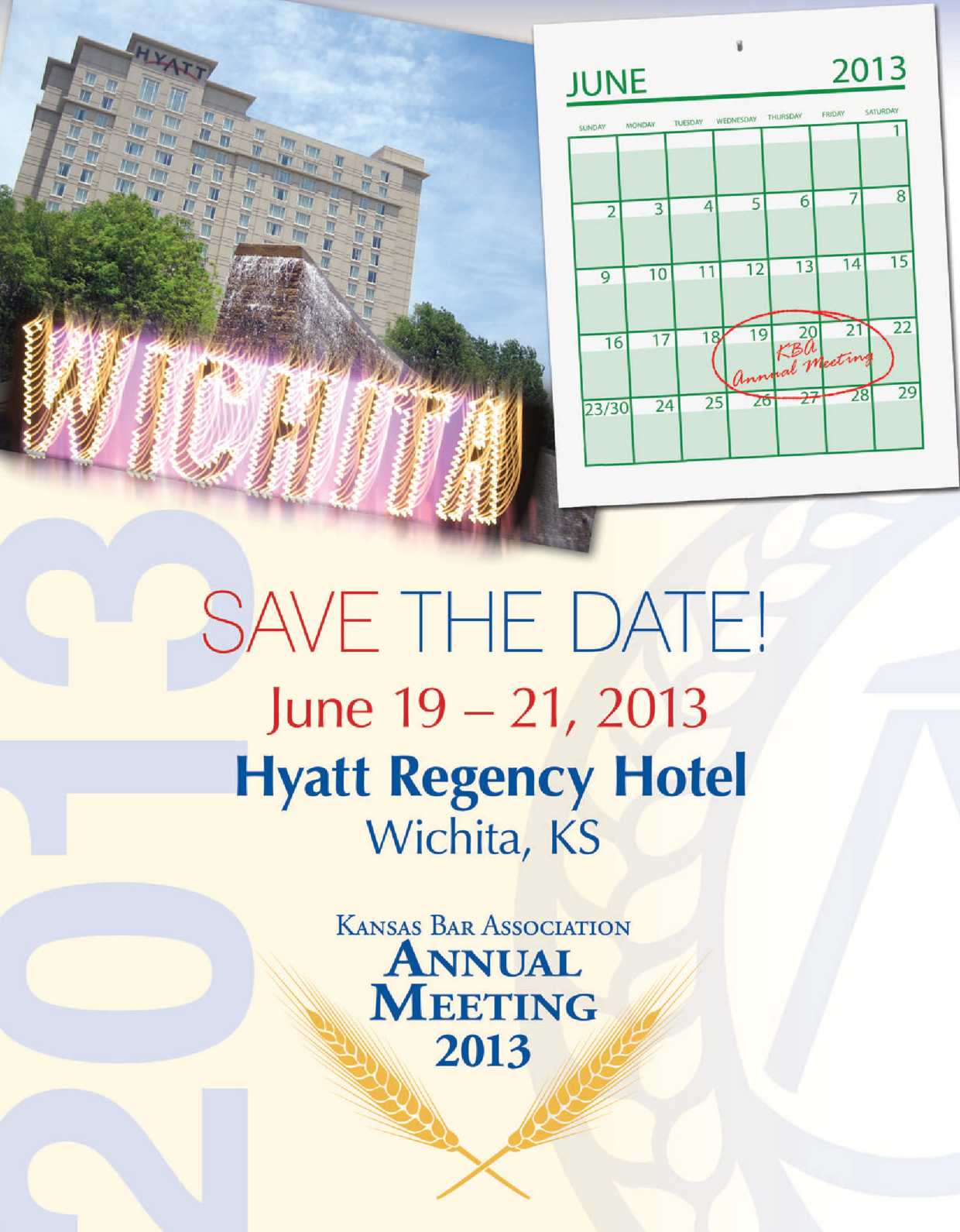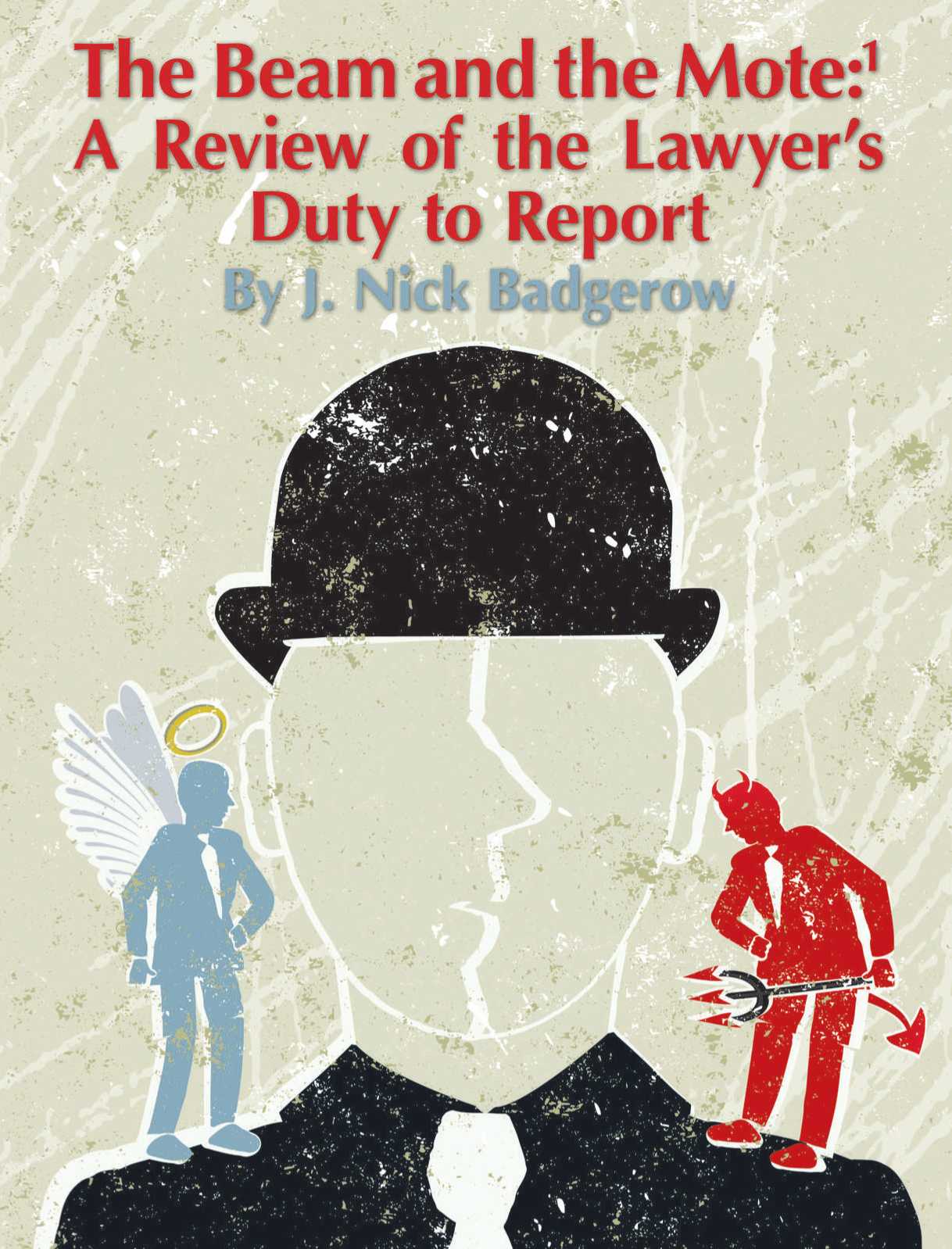Obituaries
| Publication year | 2013 |
| Pages | 18 |
Eldon Sloan
Eldon Sloan, of Topeka, died December 16 at his home; he was 103. He was born in Hoxie on March 26, 1909, the oldest son of the Hon. Edward R. and Julia Wright Sloan. The family moved to Holton in 1911, and he graduated from high school in 1927.
Sloan graduated from the University of Kansas in 1931 and graduated from Washburn University School of Law in 1933. He entered into private practice in Topeka with the firm of Sloan, Hamilton & Sloan; the firm still bears his name. Sloan retired in 1979 but maintained an office at the firm until 2010, and at the time of his death, was the oldest active member of the Kansas Bar Association.
He served in the U.S. Navy during World War II and was a police judge for the city of Topeka from 1941 to 1944. He was director of valuation for the state of Kansas from 1957 to 1960 and a member of the Kansas Board of Regents from 1964 to 1968. Sloan was also a member of the Topeka Rotary Club, where he was a Paul Harris Fellow; Topeka Country Club; the Judicature Society; a Kansas Bar Foundation Fellow; and a life member in the Topeka Elks Club, and American, Kansas, and Topeka bar associations. Sloan served on the boards of the YMCA, Jayhawk Council of Boy Scouts, and Family Service and Guidance Center, where he was past president.
Sloan is survived by his two sons, John, of Gig Harbor, Wash., and Paul, of San Rafael, Calif.; daughter, Mary Mozingo, of Lawrence; nine grandchildren; 11 great-grandchildren; and numerous nieces, nephews, and cousins. He was preceded in death by his wife, Harriet Burrows Perry; parents; brother, Justice Gordon Sloan, of Salem, Ore.; sister, Clarice Beldon, of Topeka; and grandson, Samuel Mozingo.


The Beam and the Mote:[1] A Review of the Lawyer’s Duty to Report
I. Overview - No Definitive Guidance
The obligation to report misconduct is governed by Rule 8.3 and the professionalism required of attorneys generally as officers of the Court. While reporting of misconduct is a touchy subject and an uncomfortable one within the bar, without adherence to this concept, a self-regulating bar is nearly impossible to achieve.[2]
When one is upset by the actions of another lawyer, a frequent reaction is to consider reporting the other lawyer to the disciplinary authority. Recalling vaguely that the Rules of Professional Conduct[3] include a "duty to report," one may be emboldened to carry out the first impulse and to report the miscreant to the Disciplinary Administrator to "take his medicine."
Then, one recalls the duty of zealous advocacy — the duty owed by lawyers to represent their clients with commitment, dedication and zeal.[4] Would it not be preferable to use an opposing lawyer's misconduct to the benefit of one's client, to press for an advantage for the client in exchange for an agreement not to report? And, if the opponent does not accede, should the zealous advocate not then press home the advantage by bringing the ethical lapse to the attention of the Court, rather than relying on the Board of Discipline to enforce the Rules?
And what about judges? Are they immune both from the duty to report and from the exposure to a possible report being made about them?
This article explores the intent, scope and impact of the duty to report imposed on all lawyers and judges, and considers the application of that duty to conduct by another lawyer, by one's self and by a judge. Do not look to this article for a definitive answer which may be applied in every case. In the end, as with most matters of ethics, the application of the duty to report comes down to an individual consideration of the particular facts and issues at hand. However, armed with the considerations discussed in this article, one may be better positioned to make that determination.
II. A Self-Policing Profession
A. Kansas Constitution
The Bar is a self-policing profession, one which is authorized to govern itself through professional conduct and judicial oversight.
The legal profession is largely self-governing. Although other professions also have been granted powers of self-government, the legal profession is unique in this respect because of the close relationship between the profession and the processes of government and law enforcement. This connection is manifested in the fact that ultimate authority over the legal profession is vested largely in the courts.[5]
The Kansas Constitution vests in the judicial branch the jurisdiction and power to oversee all courts in the state. Article 3, Section 1 provides, in part: "The supreme court shall have general administrative authority over all courts in this state."[6]
Under Article 3, Section 1, the judicial power is vested in a supreme court, district courts, probate courts, justice of the peace, and such other courts, inferior to the supreme court, as may be provided by law. Under that provision of the constitution, the supreme court stands at the head of the judicial department (Householder v. Morrill, 55 Kan. 317, 40 P.2d 66 (1895)) and is invested with inherent power arising from its creation, or from the fact that it is a court. Inherent power is essential to its being and dignity, and does not require an express grant to confer it. (Petition of Florida State Bar Ass'n, 40 So.2d 902 (1949))[7]
The right and power to regulate the practice of law is conferred by Article 3 upon the courts, exclusively.
It is unnecessary here to explore the limits of judicial power conferred by that provision, but suffice it to say the practice of law is so intimately connected and bound up with the exercise of judicial power in the administration of justice that the right to regulate the practice naturally and logically belongs to the judicial department of government. (In re Investigation of Nebraska State Bar Ass'n, 133 Neb. 283, 275 N.W. 265, 114 A.L.R. 151. (1937)). Included in that power is the supreme court's inherent right to prescribe conditions for admission to the Bar, to define, supervise, regulate and control the practice of law, whether in or out of court, and this is so notwithstanding acts of the legislature in the exercise of its police power to protect the public interest and welfare. (Citations omitted.) It follows that the power of the supreme court to make reasonable rules for these purposes is not open to question. (Citations omitted.)[8]
Pursuant to that constitutional authority, Kansas statutes confer upon the Supreme Court the power to oversee the admission of lawyers to practice before the state's courts. K.S.A. 7-103(a) provides:
(a) The supreme court of this state may make such rules as it may deem necessary for the examination of applicants for admission to the bar of this state and for the discipline and disbarment of attorneys.
Given the broad mandate of Article 3, Section 1 of the Constitution and the doctrine of the separation of powers, one wonders whether this statute is necessary or even effective to grant any further or additional power to the Court. However, the statute is at least consistent with the constitutional provision vesting authority in the Court.
B. Kansas Supreme Court Rules
Pursuant to the constitutional power extended by Article 3 (and either pursuant to or in ignorance of K.S.A. 7-103(a)), the Kansas Supreme Court has, indeed, adopted rules for the admission, discipline and disbarment of attorneys.[9] Under Rule 201, any attorney admitted to practice law in this state — whether by license or by special admission pro hac vice — is subject to the jurisdiction of the Supreme Court and the authority established by its Rules.[10]
C. Role of the Supreme Court
Under the established rules, the Kansas Supreme Court sits at the top of the organizational structure. As discussed below, the Supreme Court hears appeals from decisions of the Board of Discipline and actually levies the disciplines of censure, suspension and disbarment.[11]
D. Board of Discipline
The Kansas Board of Discipline for Attorneys is established by Rule 204. The Board is empowered to perform the duties imposed and conferred by the Rules of the Supreme Court.[12]
E. Disciplinary Administrator
Under Rule 205, the Supreme Court appoints a disciplinary administrator, who is empowered to employ staff, investigate complaints, maintain permanent records of discipline, prosecute disciplinary proceedings, appear before the Supreme Court and to investigate and prosecute for the Board of Law Examiners "as needed."[13]
F. Bar Committees
Under Rule 210, the disciplinary administrator "may call upon any member of the bar of this state or any local or state bar association to investigate or assist in the investigation of any complaint ..."[14] There are, throughout the state, a number of committees established by the Kansas Bar Association and various city and county bar associations whose members are called upon to conduct investigations for the disciplinary administrator and to report those investigations to that office.
Thus, as a self-policing profession, there are avenues available for reporting complaints, which are then investigated and decided through a clearly-defined mechanism designed to provide due process to the participants. And, if the participants do not use the avenues provided, if the bar fails (in the perception of the public) to police itself adequately, others outside the bar may step in and try to force regulation upon it.
To the extent that lawyers meet the obligations of their professional calling, the occasion for government regulation is obviated. Self-regulation also helps maintain the legal profession's independence from government domination. An independent legal profession is an important force in preserving government under law, for abuse of legal authority is more readily challenged by a profession whose...
To continue reading
Request your trial
